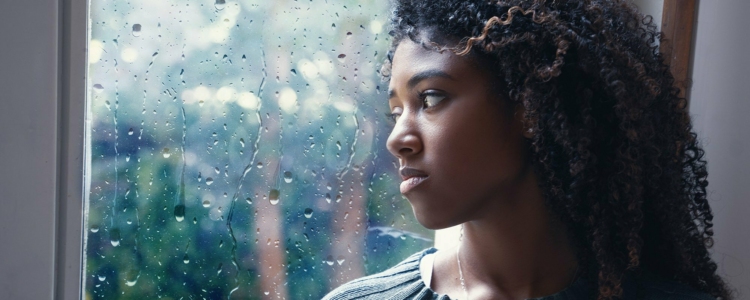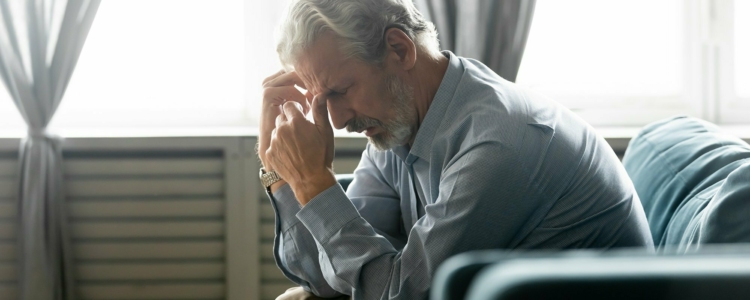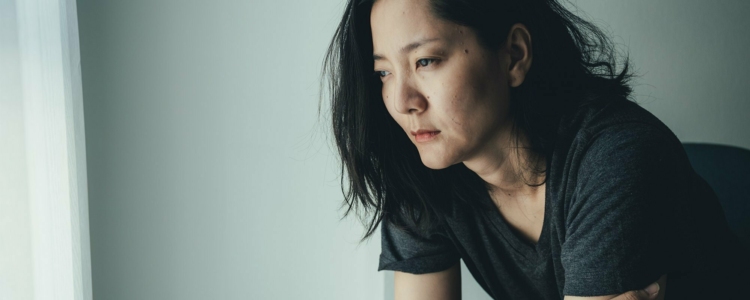Depression
Depression is different from sadness or momentary depression. It is an illness that can result from major events in your life like losing a loved one, a divorce, losing your job, low self-esteem or certain medical treatments. It can also be genetic and mainly affects adults, even though children and adolescents can also be affected.
Your doctor can diagnose depression and help you get the help you need.
Symptoms
If you are depressed, you will experience at least five of the symptoms below every day, all day for at least two weeks:
- No interest or pleasure in things you used to enjoy
- Overwhelming feelings of sadness
- Crying easily for no reason
- Restlessness or apathy
- Feeling worthless, hopeless or guilty
- Changes in appetite (weight gain or weight loss)
- Thoughts of suicide or death
- Trouble thinking or concentrating on a task
- Trouble making everyday decisions
- Difficulty sleeping
- Feeling tired all the time
- Feeling a lack of emotion
Treatments: Psychological or medication
Depression is often treated with a combination of drug and non-drug therapies. The sooner you get treated, the sooner you may begin to feel more like yourself, even if treatment usually lasts several months.
Non-drug therapy
- Psychotherapy – counselling with your family doctor or other qualified therapist
- Social support – family, friends and support groups
- Drug and alcohol avoidance
- Light therapy – may help with seasonal affective disorder (winter depression)
- Physical activity
Drug and medical therapy
- Prescription antidepressant drugs
- Natural products—talk to your doctor before taking any herbal remedies for depression
- Electroconvulsive therapy (ECT) in certain cases where conventional therapy is ineffective.
Anxiety and stress
Anxiety affects all of us from time to time. You may experience feelings of worry, or even fear caused by pressure from work, public speaking or other demanding situations. These feelings often disappear quickly. Anxiety can even have a positive effect and help you to be creative under pressure or to react quickly to danger. Conversely, it can have negative effect and keep you from going about your everyday activities.
If your feelings of anxiety change into a sense of dread or regularly interfere with your daily activities, you may want to seek the help of a health care professional.
GAD and panic disorder
The most common anxiety disorders are generalized anxiety disorder (GAD) and panic disorder, though there are others.
GAD is not related to a particular event or situation and can cause the following symptoms:
- Muscle tension
- Inability to concentrate
- Irritability
- Dizziness
- Shortness of breath
- Nausea
- Fast heartbeat
- Insomnia
- Dry mouth
As for panic disorder, it is characterized by panic attacks, symptoms of which may include the following:
- Choking sensation
- Trembling
- Chest pain/pressure
- Nausea
- Racing heartbeat
- Tingling/numbness in hands or feet
- Rapid pulse
- Dream-like sensations
- Dizziness
- Hot flashes or chills
- Shortness of breath
- Fear of losing control
Treatments
If you think you may be suffering from anxiety, talk to your doctor. They can help you create a plan to manage your anxiety that will include choosing a specific time and place to do your worrying and learning how to relax. You can then think about the causes of your anxiety and use relaxation to manage your concerns. Your doctor can also prescribe medication to treat your anxiety.
Non-drug therapy
- Counselling with a qualified professional
- Support groups
- Muscle relaxation
- Yoga
- Deep breathing
- Alcohol, drug and caffeine avoidance
- Physical activity
Drug therapy
- Prescription drugs
- Natural products—talk to your doctor before taking any herbal remedies for anxiety.
This information is not a substitute for professional medical advice and Accès pharma affiliated pharmacist-owners cannot be held responsible for this information. The information was true and accurate at the time of publication, but it is subject to change.





